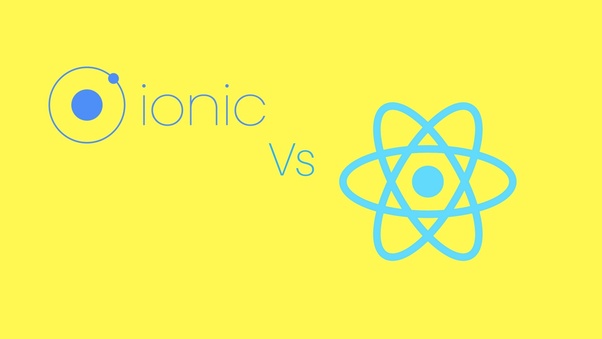The mobile app market is continuously growing , and lots and lots of apps in continuously getting uploaded on their respective stores . As the mobile apps are rising , the challenges in mobile app development industry is really getting daunting task as everyone wants to engage new customers through mobile apps .
When it comes to enhancing the customer retention and engagement , most the the developer will be concerned about the platform or framework to choose from to get the best result . There are limited number of platforms as far as in mobile app development as of now .
But we are discussing here about cross platform app development which is apart from native app development , in which we have a known framework like Flutter, React Native , Ionic etc . Now it’s your call for which one to choose from !!
Here we will be limiting our article to make comparison between two most popular platform : Ionic and React Native . But before we discuss any further , let me describe what are these frameworks with their brief description .
React Native
React native has given its first look in 2015 , which is developed by Facebook . It is based on Javascript framework used extensively for creating Native mobile and web application development .
It is compatible with both Android and iOS platform . However react native does not offer support to hybrid and HTML5 app .
Ionic
If you want to build your app on Javascript , CSS and HTML5 , then probably Ionic is the best option to choose from . It is one of the best open source framework for building awesome hybrid mobile application development .
This framework is fully compatible with Apache Cordova and Angular , which influences developer to choose this platform as their preferred choice . Tools like SaaS and CSS etc helps in development of mobile application with ionic framework.
Native Vs Hybrid : Difference Explained
As we have discussed above React Native is meant for development of native application using Javascript . The developers will have ease of access of sharing codes by rendering native components. Hence we can say a end product will give a close proximity of native mobile app and will be dedicatedly be enhanced for that operating system .
Thus we can say React native aids in performance improvement with the use of animations , graphics and more . So if you have compiled the application well , it will give you seamless result like in case of native application .
On the other hand when we say choosing a Ionic framework – it delivers a application in hybrid development framework . It makes use of web based technologies like HTML5 with the support of tools like Cordova or PhoneGap for minor implementation of native feature upto the limit of feasibility .
Performance Measured
React native works on a principle of ” Learn once , write anywhere ” , wherein on the other hand Ionic framework principle is ” Write once , run everywhere ”
So when we are comparing the performance of two competitors , there is no doubt react native will be a winner as it offers a native experience together with faster comparison . But react native is not suitable for building a small scale application , it is largely used for making enterprise application for large enterprises . Native apps are always costly for development , specially when you are planning for small apps just for customer enhancement .
Ionic perform a bit slower than React Native as it loads the web view of the website in app . It can be optimised with the use of optimised HTML, CSS and Javascript for mobile . Ionic framework is best use for building a faster prototype .
Which One Is More Easier To Learn ?
If you are familiar with Angular , then it will be very easy for you to learn the Ionic framework as it is totally based on JS framework together with HTML view for its views .
React Native is also based on JS framework , which is somewhat similar to HTML , but known as JSX . Although JSX is easy codebase to work with , in case you are working with a team . However if you are working individually and there is lack of collaboration in the team , then it will create a problem for you to learn this language as it is not as simple as writing a code in HTML with CSS .
Which Platform Is Better In Testing ?
The best part in React Native is it live shows the output of the app in the mobile phone within any need of recompiling the application . But the only demerit is it does not allow testing of the application on the browser . But who cares , after all you can see live directly in the phone as soon as you made the change in the computer .
Now talking about Ionic , you have to made some additional performance for its testing , with instant feedback required during app development process , which irritate the developers at times in case they are looking for the pixels which best suits their application . But if offers the viewing of application on a web browser immediately .
Conclusion
Both are at its best when you have decided to go on with cross platform app development , and its very difficult job to tell which one is best due to their own pros and cons .
But as per Winklix study , native app gives a higher user end performance and every company is building app for customers only , so you must choose on with react native app development . But if you want to want some small scale informational app or having a limited budget , then going on with Ionic is better option .




